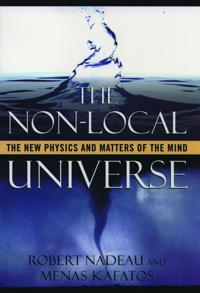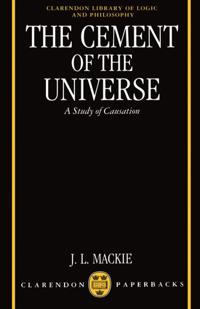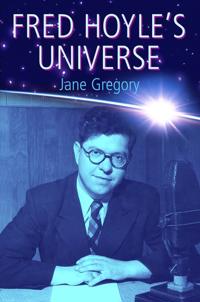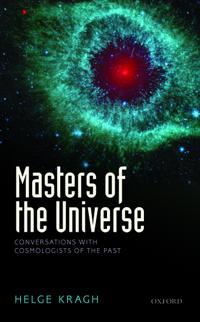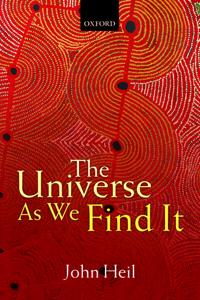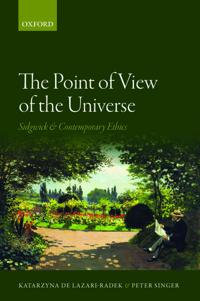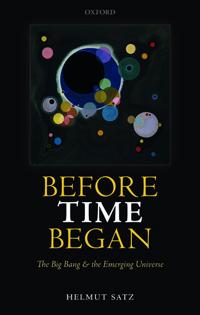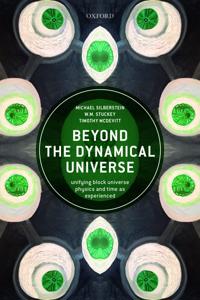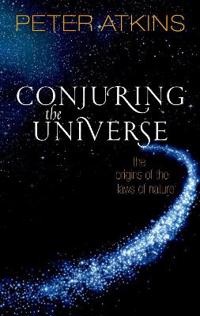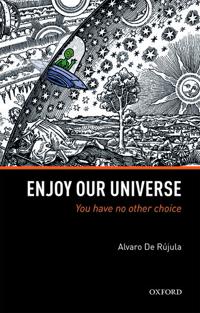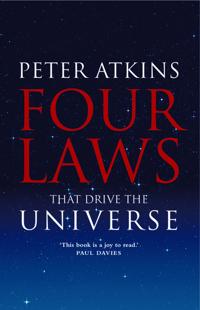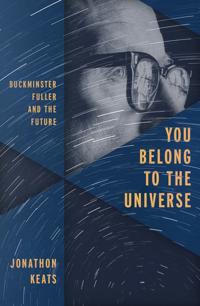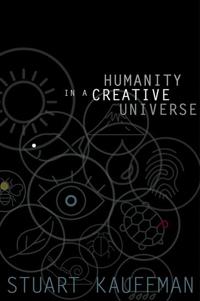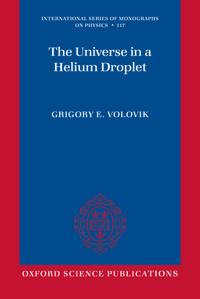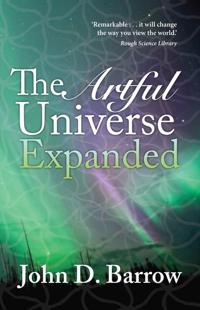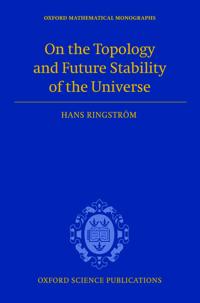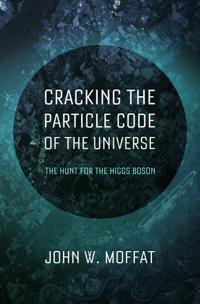The Non-Local Universe (Pocket)
avRobert Nadeau, Minas C. Kafatos, Robert Nadeau
ISBN: 9780195144086 - UTGIVEN: 2001-05Classical physics states that physical reality is local-a point in space cannot influence another point beyond a relatively short distance. However, In 1997, experiments were conducted in which light particles (photons) originated under certain conditions and traveled in opposite directions to detec[...]
Civilized Life in the Universe: Scientists on Intelligent Extraterrestrials (Inbunden)
avGeorge Basalla
ISBN: 9780195171815 - UTGIVEN: 2006-02-23How Can the Human Mind Occur in the Physical Universe? (Inbunden)
avJohn R. Anderson
ISBN: 9780195324259 - UTGIVEN: 2007-09-06How Can the Human Mind Occur in the Physical Universe? (Häftad)
avJohn R. Anderson
ISBN: 9780195398953 - UTGIVEN: 2009-07Fred Hoyle's Universe (Inbunden)
avJane Gregory
ISBN: 9780198507918 - UTGIVEN: 200505Fred Hoyle was one of the most widely acclaimed and colourful scientists of the twentieth century, a down-to-earth Yorkshireman who combined a brilliant scientific mind with a relish for communication and controversy. Best known for his steady-state theory of cosmology, he described a universe with [...]
Masters of the Universe (Inbunden)
avHelge Kragh
ISBN: 9780198722892 - UTGIVEN: 2015-01How did our modern picture of the universe come into being? Masters of the Universe tells this fascinating story in an unusual format that blends factual and fictional elements. It is based on a series of interviews that a fictional person conducted with leading astronomers and physicists between 19[...]
The Universe As We Find It
ISBN: 9780198738978 - UTGIVEN: 2015-06What does reality encompass? Is reality exclusively physical? Or does reality include nonphysical-mental, and perhaps 'abstract'-aspects? What is it to be physical or mental, or to be an abstract entity? What are the elements of being, reality's raw materials? How is the manifest image we inherit fr[...]
The Lazy Universe
ISBN: 9780198743040 - UTGIVEN: 2017-07This is a rare book on a rare topic: it is about 'action' and the Principle of Least Action. A surprisingly well-kept secret, these ideas are at the heart of physical science and engineering. Physics is well known as being concerned with grand conservatory principles (e.g. the conservation of energy[...]
The Point of View of the Universe
ISBN: 9780198776727 - UTGIVEN: 2016-06What does the idea of taking 'the point of view of the universe' tell us about ethics? The great nineteenth-century utilitarian Henry Sidgwick used this metaphor to present what he took to be a self-evident moral truth: the good of one individual is of no more importance than the good of any other. [...]
Before Time Began: The Big Bang and the Emerging Universe
ISBN: 9780198792420 - UTGIVEN: 2017-11What is the origin of the universe? What was there before the universe appeared? We are currently witnessing a second Copernican revolution: neither our Earth and Sun, nor our galaxy, nor even our universe, are the end of all things. Beyond our world, in an endless multiverse, are innumerable other [...]
Beyond the Dynamical Universe
ISBN: 9780198807087 - UTGIVEN: 2018-04A novel approach to the unresolved issues of theoretical physics and the philosophy/foundations of physics.[...]
Conjuring the Universe
ISBN: 9780198813378 - UTGIVEN: 2018-05The marvellous complexity of the Universe emerges from several deep laws and a handful of fundamental constants that fix its shape, scale, and destiny. Peter Atkins identifies the minimum decisions that would be needed for the Universe to behave as it does, arguing that the laws of Nature can spring[...]
Signatures of the Artist: The Vital Imperfections That Make Our Universe Habitable
ISBN: 9780198814825 - UTGIVEN: 2018-05How does the scientific enterprise really work to illuminate the origins of life and the universe itself? The quest to understand our universe, how it may have originated and evolved, and especially the conditions that allow it to support the existence of life forms, has been a central theme in reli[...]
Enjoy Our Universe
ISBN: 9780198817802 - UTGIVEN: 2018-09Enjoy Our Universe is a guide for an enjoyable visit to the Universe. The "Universe" refers to all "observable things," ranging in size from the entire cosmos to elementary particles. This small tome on fundamental physics, cosmology, Higgs bosons, time travel and all that, is unlike any other analo[...]
Four Laws That Drive the Universe (Inbunden)
avPeter Atkins
ISBN: 9780199232369 - UTGIVEN: 200709The laws of thermodynamics drive everything that happens in the universe. From the sudden expansion of a cloud of gas to the cooling of hot metal, and from the unfurling of a leaf to the course of life itself - everything is directed and constrained by four simple laws. They establish fundamental co[...]
You Belong to the Universe
ISBN: 9780199338238 - UTGIVEN: 2016-04Without doubt, the inventor Buckminster "Bucky" Fuller (1895-1983) was a visionary. A self-professed "comprehensive anticipatory design scientist" Fuller's creations often bordered on the realm of science fiction, ranging from the geodesic dome to the three-wheel Dymaxion car to a bathroom requiring[...]
Humanity in a Creative Universe
ISBN: 9780199390458 - UTGIVEN: 2016-04In the hard sciences, which can often feel out of grasp for many lay readers, there are "great thinkers" who go far beyond the equations, formulas, and research. Minds such as Stephen Hawking philosophize about the functions and nature of the universe, the implications of our existence, and other im[...]
On The Nature Of The Universe (Pocket)
avTitus Lucretius Carus
ISBN: 9780199555147 - UTGIVEN: 2009-02-01This is a new verse translation of Lucretius's only known work, a didactic poem written in six books of hexameters. Melville's particularly literal translation of the use of metaphor is especially helpful to those looking at the text from a scientific or philosophical point of view.[...]
The Universe in a Helium Droplet (Häftad)
avG.E. Volovik
ISBN: 9780199564842 - UTGIVEN: 200902There are fundamental relations between three vast areas of physics: particle physics, cosmology and condensed matter physics. The fundamental links between the first two areas, in other words, between micro- and macro- worlds, have been well established. There is a unified system of laws governing [...]
The Artful Universe Expanded (Pocket)
avJohn D. Barrow
ISBN: 9780199601332 - UTGIVEN: 201103In The Artful Universe (OUP, 1995) John D. Barrow explored the close ties between our aesthetic appreciation and the basic nature of the Universe, challenging the commonly held view that our sense of beauty is entirely free and unfettered. It looked at some of the unexpected ways in which the struct[...]
The Point of View of the Universe (Inbunden)
avKatarzyna de Lazari-Radek
ISBN: 9780199603695 - UTGIVEN: 2014-05What does the idea of taking 'the point of view of the universe' tell us about ethics? The great nineteenth-century utilitarian Henry Sidgwick used this metaphor to present what he took to be a self-evident moral truth: the good of one individual is of no more importance than the good of any other.[...]
On the Topology and Future Stability of the Universe (Inbunden)
avHans Ringstrom
ISBN: 9780199680290 - UTGIVEN: 201305The standard starting point in cosmology is the cosmological principle; the assumption that the universe is spatially homogeneous and isotropic. After imposing this assumption, the only freedom left, as far as the geometry is concerned, is the choice of one out of three permissible spatial geometrie[...]
Behind the Scenes of the Universe (Inbunden)
ISBN: 9780199683086 - UTGIVEN: 2013-10An extraordinary discovery has recently shaken the foundations of Cosmology and Particle Physics, sparking a scientific revolution that has profoundly modified our understanding of our Universe and that is still far from over. Pioneering astronomers in the 1920s and 1930s had already noticed suspici[...]
Cracking the Particle Code of the Universe (Inbunden)
avJohn W. Moffat
ISBN: 9780199915521 - UTGIVEN: 2014-01If the new boson is indeed the Higgs particle, its discovery represents an important milestone in the history of particle physics. However, despite the pressure to award Nobel Prizes to physicists associated with the Higgs boson, John Moffat argues that there still remain important data analyses to [...]

